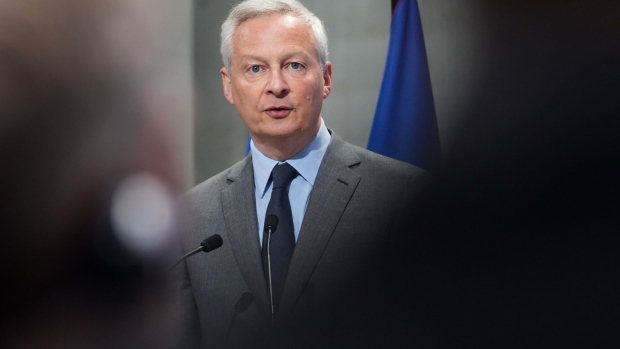May 30, 2023
EU Should Drop ‘Useless’ New Combustion-Car Rules, Minister Says
, Bloomberg News

(Bloomberg) -- France’s finance minister joined automaker calls for the European Union to walk back upcoming anti-pollution regulation for car tailpipes that would significantly add to the cost of making combustion-engine cars.
The so-called Euro 7 rules, set to come into force in from 2025 for what will be the last generation of combustion engines, will weigh on an industry already struggling to make the switch to electric cars, French Finance Minister Bruno Le Maire said Tuesday during the inauguration of Automotive Cells Company’s battery plant in northern France.
Mercedes-Benz Group AG Chief Executive Officer Ola Källenius at the same event said the upcoming regulation, while using up funds, won’t make much difference for the environment.
“Perhaps we would do better to forget this Euro 7 standard, which will cost our car manufacturers useless money,” Le Maire said, with neither China nor the US making the same imposition on their automakers. “We need to invest in tomorrow’s technologies, not yesterday’s.”
The Euro 7 regulation seeks to tighten rules on pollutants other than CO2, like carbon monoxide and nitrogen oxides. The rules also aim to tackle particulates coming from brakes and tires. Eight EU nations, including France, have called for the bloc to scrap new pollution limits for car tailpipes as they distract from the goal of effectively banning new combustion engine vehicles after 2035, adding to pushback on the EU’s pace on introducing environmental regulation.
“Let’s not allocate the scarce capital that we have to things that will not yield a significant result – and here I’m talking about the ecological result,” Källenius said in an interview in northern France on the sidelines of the ACC battery factory inauguration.
Le Maire and executives from Stellantis, TotalEnergies and Mercedes-Benz attended the opening of ACC’s battery factory, as Europe tries to challenge the domination of Asian firms in supplying the EV industry.
The EU’s rules to effectively ban the combustion engine in new cars from 2035 were delayed for weeks after a last-minute push by Germany to secure allowances for so-called e-fuels. Among the concerns are significant job losses in the sector while a lack of infrastructure including charging points makes EVs unattractive to many consumers.
--With assistance from William Wilkes.
©2023 Bloomberg L.P.


